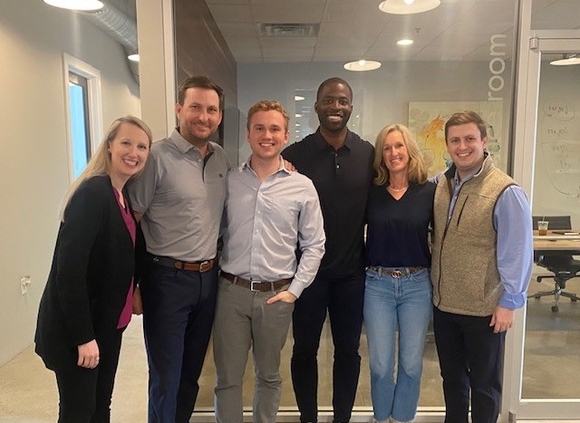The Eye of the Hurricane and Mohamed Massaquoi
It is in the eye of the hurricane where the winds are most calm. For those who have experienced it, they describe an eerie stillness, where the sun peeks through and the effects of the ravaging storm around them are not felt. While the outer bands can see winds that exceed 150 miles per hour, the center of the storm feels a light breeze. Mohamed (Mo) Massaquoi knows what this feels like.
In a short number of years, Mohamed (Mo) Massaquoi has lived many lives. Each with its twists and turns and lessons learned to carry into the next stage. Mo describes himself as an athlete, father, husband, and psychologist. In his professional life, he is the managing director of VESSOL.
We we’re blessed to have Mo over for this month’s huddle to learn more about VESSOL and the impact and incredible value they drive for their clients.
Today, Mo uses his experiences to help organizations harness their team’s true potential, maximize performance and positively impact the broader business. They do that by working with their clients to identify performance barriers preventing employees from being their best and creating customized solutions to hit their goals.
Mo shared with us his belief that experiences are like breadcrumbs that we leave behind. Mo uses his platform to encourage others to leverage their past experiences and look at things from a new perspective. While probably not as dramatic as Mo’s, we all have breadcrumbs that can help us as we navigate the storms ahead.
In his workshops he helps employees look at their real self vs. what industry says should be the right path. These insights can help individuals, and the broader organization, grow and evolve.
Mo believes that piercing the hearts and minds of people to ensure alignment with the organization is the hardest challenge for leaders. For this to happen, leaders must:
- Have situational awareness to keep the team aligned.
- Understand nuances and cultures.
- Find ways to get people to perform in ways that are natural and on the same page as the company.
- Understand what is going on across roles to help eliminate bias and redundancies.
For an organization to succeed long-term and weather the storms that will inevitably come, everyone must have agreement on direction. Good people will come and go, but leaders must look at this as an opportunity to integrate new perspectives and bring new skills that can make the organization better.
One of the key lessons that Mo has translated from the field to the business world is the value of affirmation from coaches and teammates. When people feel valued and supported by those around them, they are more willing to tackle “big” things. Creating a culture that is supportive and embrace the possible is vital to an organization’s long-term success.
Our team was honored to spend time with Mo and we are all searching the breadcrumbs of our past to find the lessons those experiences are trying to teach us.




